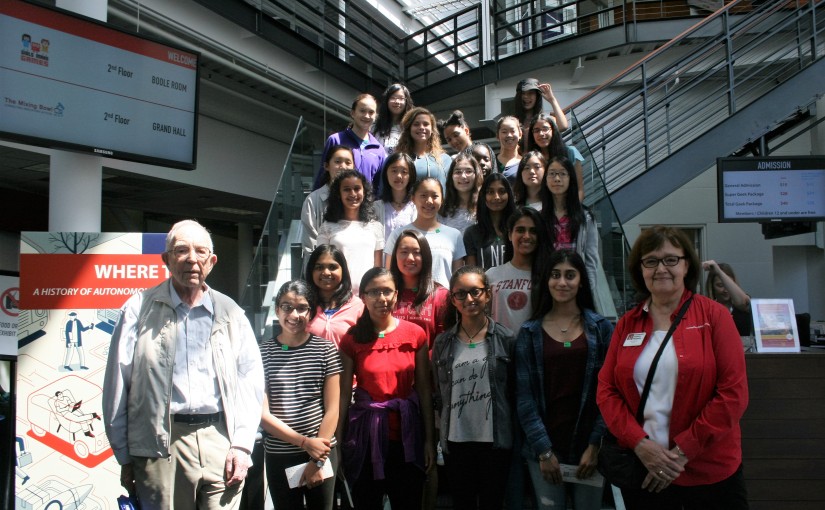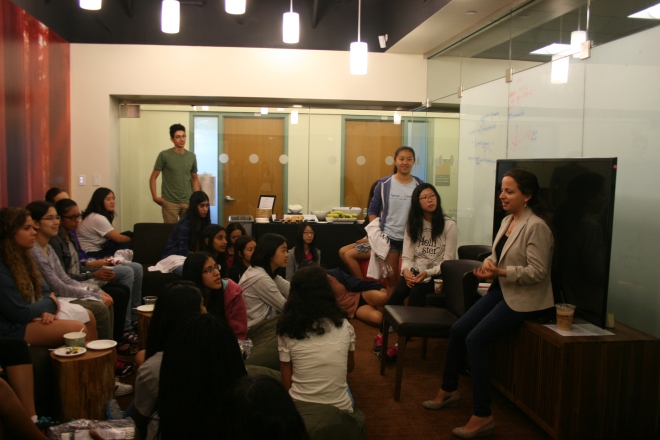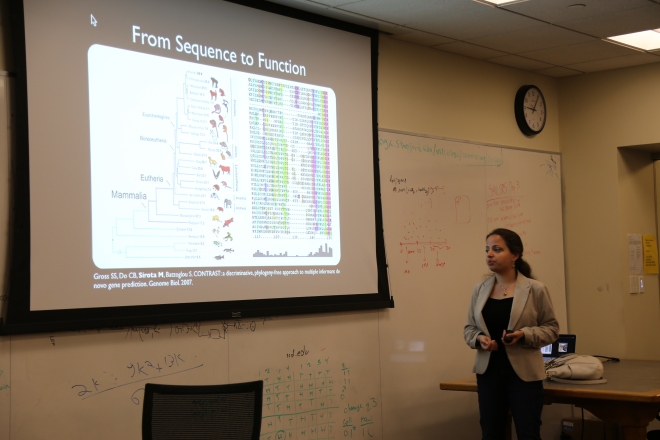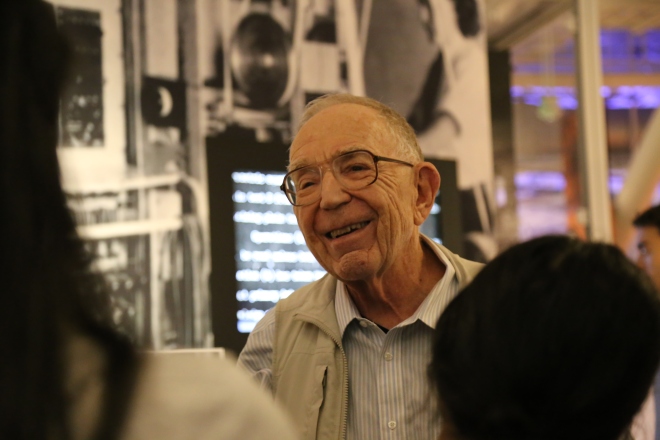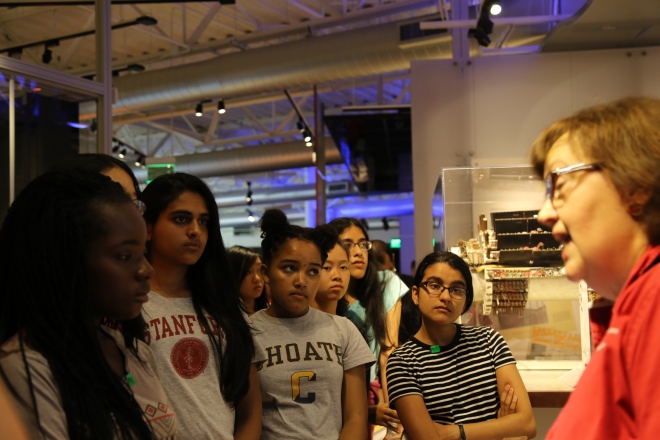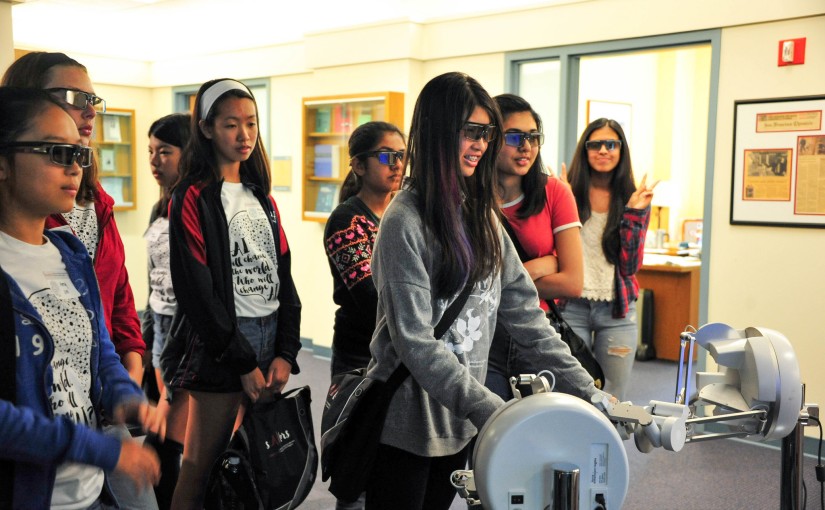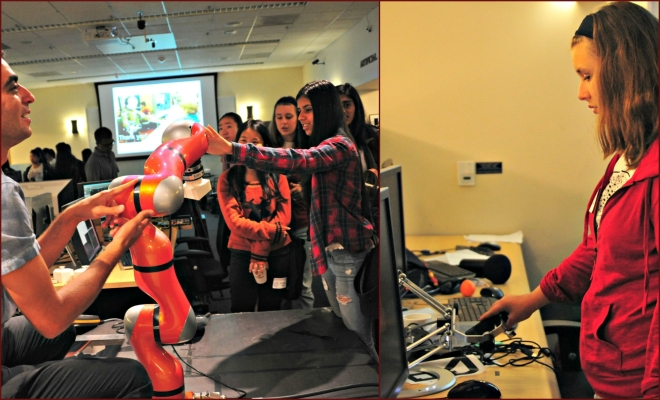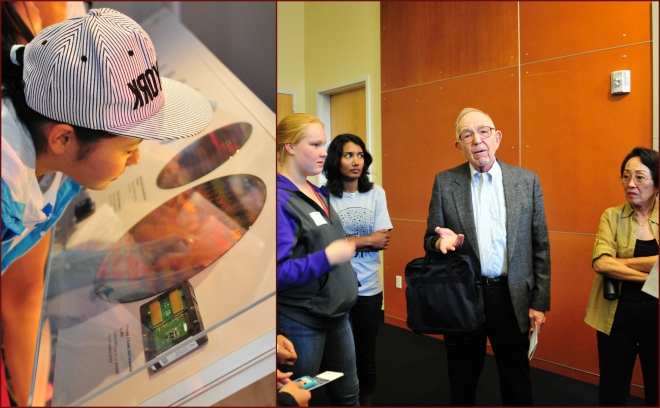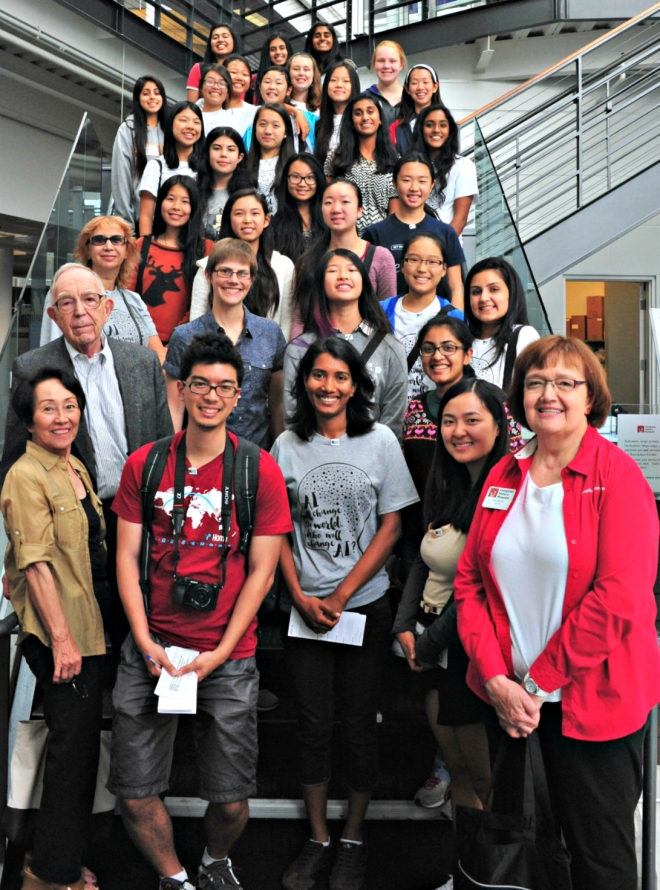Day 3 kicked off with a casual breakfast Q and A session with Assistant Professor at UCSF School of Medicine Marina Sirota. Marina talked about everything from her experience in high school to why she decided to pursue biomedical informatics.
After the Q and A session, the students learned about biomedical informatics from a presentation Prof. Sirota gave. Campers were introduced to how biomedical data, when used hand in hand with AI, can be utilized to improve the problem solving process in human health. Marina also discussed how existing drugs could help cure other diseases.
The campers then met with their research groups and continued learning and working on their projects.
The day concluded with a fun and educational field trip to the Computer Science History Museum in Mountain View. Prof. Edward Feigenbaum, often called the “father of expert systems,” and Sue Mickel led the campers on guided tours around the museum. The students learned about everything from the origins of the first computer to the development of robotics to the evolution of artificial intelligence. We hope the campers are just as excited as we are for day 4 of SAILORS!
